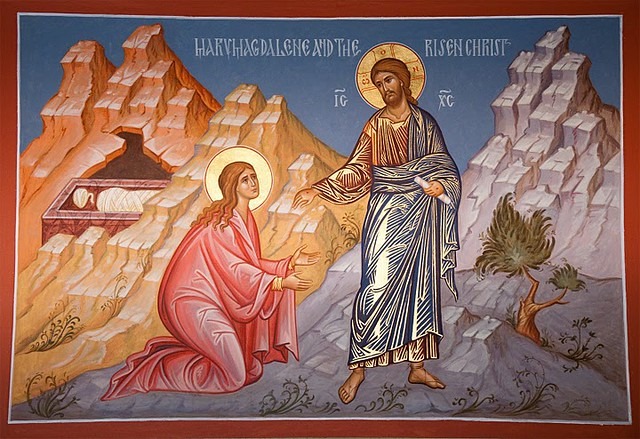 “But Mary stood weeping outside the tomb, and as she wept she stooped to look into the tomb; and she saw two angels in white, sitting where the body of Jesus had lain, one at the head and one at the feet. They said to her, ‘Woman, why are you weeping?’ She said to them, ‘Because they have taken away my Lord, and I do not know where they have laid him.’ Saying this, she turned round and saw Jesus standing, but she did not know that it was Jesus. Jesus said to her, ‘Woman, why are you weeping? Whom do you seek?’ Supposing him to be the gardener, she said to him, ‘Sir, if you have carried him away, tell me where you have laid him, and I will take him away.’ Jesus said to her, ‘Mary.’ She turned and said to him in Hebrew, ‘Rabboni!’ (which means Teacher).” (Jn 20: 11-16)
“But Mary stood weeping outside the tomb, and as she wept she stooped to look into the tomb; and she saw two angels in white, sitting where the body of Jesus had lain, one at the head and one at the feet. They said to her, ‘Woman, why are you weeping?’ She said to them, ‘Because they have taken away my Lord, and I do not know where they have laid him.’ Saying this, she turned round and saw Jesus standing, but she did not know that it was Jesus. Jesus said to her, ‘Woman, why are you weeping? Whom do you seek?’ Supposing him to be the gardener, she said to him, ‘Sir, if you have carried him away, tell me where you have laid him, and I will take him away.’ Jesus said to her, ‘Mary.’ She turned and said to him in Hebrew, ‘Rabboni!’ (which means Teacher).” (Jn 20: 11-16)
I have written several reflections on this passage, throughout the past few years. Today I’m reflecting on it again, because it is the NC-feast of St. Mary Magdalene, who was to be recognized by the Church as “Equal-to-the-Apostles.” On that Sunday morning two millennia ago, she was not “with” the Apostles, but stood alone, “weeping outside the tomb.” And by all indications, she felt very much alone, as if she were the only one who had suffered the loss of “her” beloved Teacher. They have taken away “my” Lord, she says, – not “our” Lord. And she’s trying to get to the bottom of this, on her own: Tell me where you have laid him, she says, and “I” will take him away. I love that! She was going to carry the Body of Christ away, somehow, …perhaps on her back, I don’t know. It’s interesting that she hadn’t thought of appealing to the Apostles, the eleven able-bodied men who might have helped out with this task. There was apparently a disconnect between the “Equal-to-the-Apostles,” Mary, and the Apostles. And when the risen Lord reveals Himself to her (as quoted above), He does not reproach her for this “disconnect,” but does nudge her to “connect,” by sending her off to tell His “brethren,” the Apostles, of her encounter with Him (Jn 20: 17).
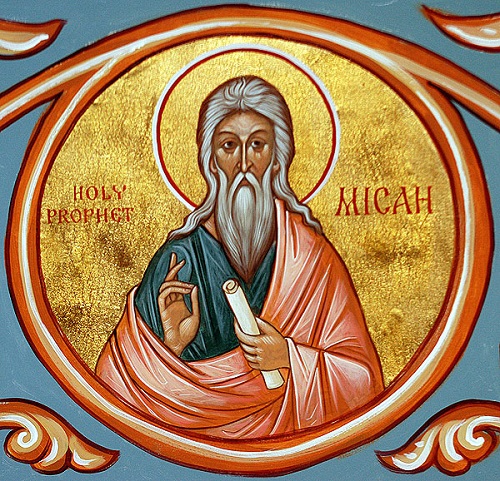 Micah prophesied between 750 and 687 bc. He was a contemporary of Amos and Isaiah.
Micah prophesied between 750 and 687 bc. He was a contemporary of Amos and Isaiah.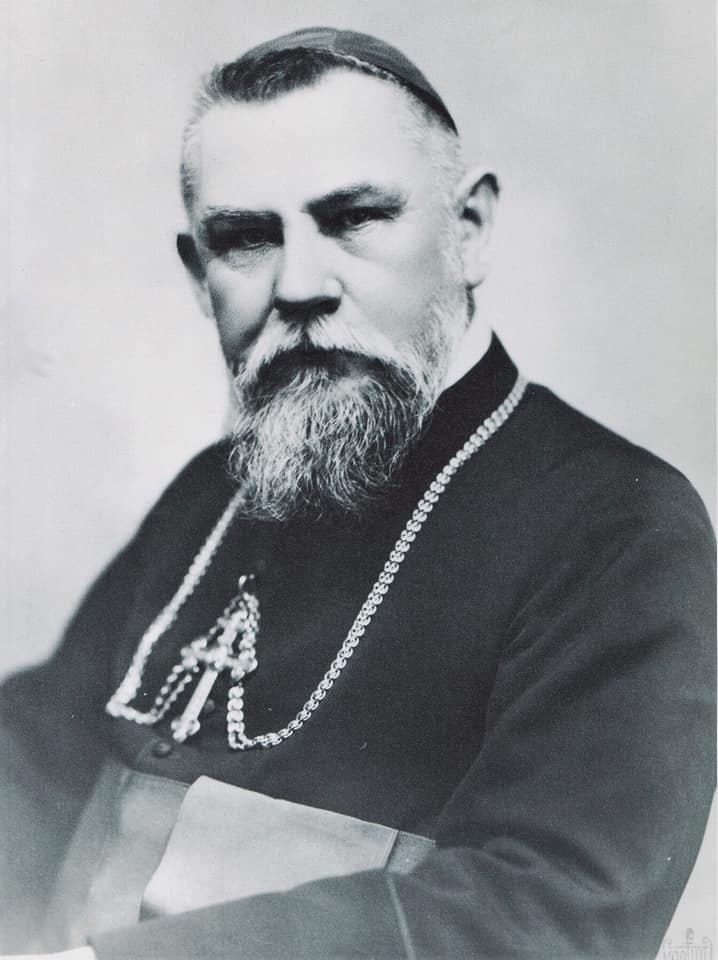 August 4th is the feast of Blessed Ioan Bălan: Romanian Greek-Catholic priest, Protopope of Bucharest, Rector of Blaj’s Theological Academy, Eparch of Lugoj, and martyr of the Communist persecutions—who died on this day in 1959, after over a decade of imprisonment without trial.
August 4th is the feast of Blessed Ioan Bălan: Romanian Greek-Catholic priest, Protopope of Bucharest, Rector of Blaj’s Theological Academy, Eparch of Lugoj, and martyr of the Communist persecutions—who died on this day in 1959, after over a decade of imprisonment without trial.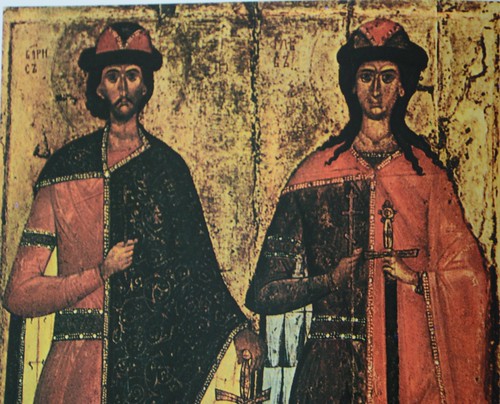 Today is the memorial of the holy protomartyrs of Kievan-Rus’, Boris and Gleb, known in baptism named Roman and David.
Today is the memorial of the holy protomartyrs of Kievan-Rus’, Boris and Gleb, known in baptism named Roman and David. “But Mary stood weeping outside the tomb, and as she wept she stooped to look into the tomb; and she saw two angels in white, sitting where the body of Jesus had lain, one at the head and one at the feet. They said to her, ‘Woman, why are you weeping?’ She said to them, ‘Because they have taken away my Lord, and I do not know where they have laid him.’ Saying this, she turned round and saw Jesus standing, but she did not know that it was Jesus. Jesus said to her, ‘Woman, why are you weeping? Whom do you seek?’ Supposing him to be the gardener, she said to him, ‘Sir, if you have carried him away, tell me where you have laid him, and I will take him away.’ Jesus said to her, ‘Mary.’ She turned and said to him in Hebrew, ‘Rabboni!’ (which means Teacher).” (Jn 20: 11-16)
“But Mary stood weeping outside the tomb, and as she wept she stooped to look into the tomb; and she saw two angels in white, sitting where the body of Jesus had lain, one at the head and one at the feet. They said to her, ‘Woman, why are you weeping?’ She said to them, ‘Because they have taken away my Lord, and I do not know where they have laid him.’ Saying this, she turned round and saw Jesus standing, but she did not know that it was Jesus. Jesus said to her, ‘Woman, why are you weeping? Whom do you seek?’ Supposing him to be the gardener, she said to him, ‘Sir, if you have carried him away, tell me where you have laid him, and I will take him away.’ Jesus said to her, ‘Mary.’ She turned and said to him in Hebrew, ‘Rabboni!’ (which means Teacher).” (Jn 20: 11-16)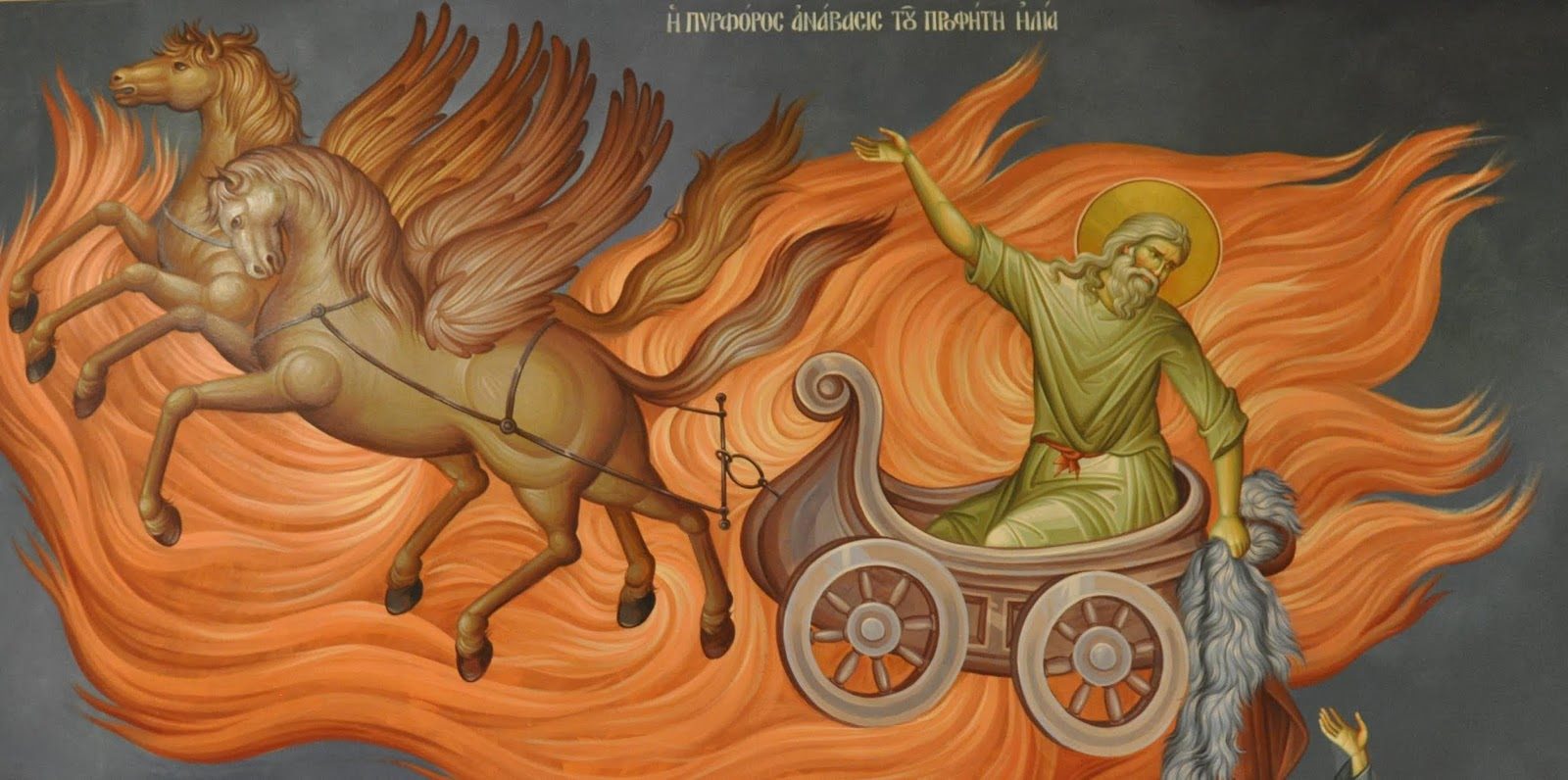 Today, July 20, we celebrate the first man on the moon, July 20, 1969. It was the Feast of St. Elijah the Prophet, who also ascended into the heavens in a fiery chariot. Who says there is not a cosmic connection!
Today, July 20, we celebrate the first man on the moon, July 20, 1969. It was the Feast of St. Elijah the Prophet, who also ascended into the heavens in a fiery chariot. Who says there is not a cosmic connection!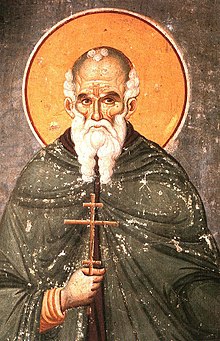 On the liturgical calendar the Church gives us a venerable father, Athanasius of Athos. His biography is interesting and useful (and a brief one follows) as it is hoped that it would assist all of us, clergy and laity alike, in following Christ more closely in the spiritual life. You may like to recall that among the many things about life in the monastery it is a more intense living of the Gospel and the tradition of the Church.
On the liturgical calendar the Church gives us a venerable father, Athanasius of Athos. His biography is interesting and useful (and a brief one follows) as it is hoped that it would assist all of us, clergy and laity alike, in following Christ more closely in the spiritual life. You may like to recall that among the many things about life in the monastery it is a more intense living of the Gospel and the tradition of the Church.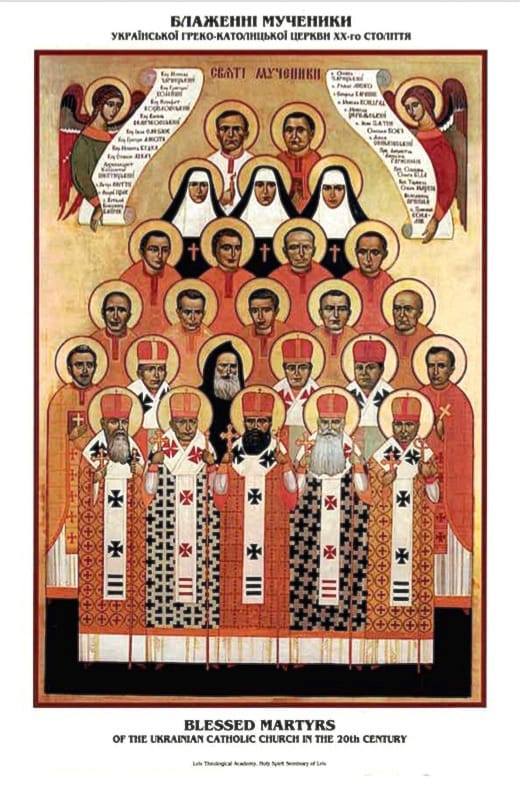 Today is the feast of the New Martyrs of Ukraine
Today is the feast of the New Martyrs of Ukraine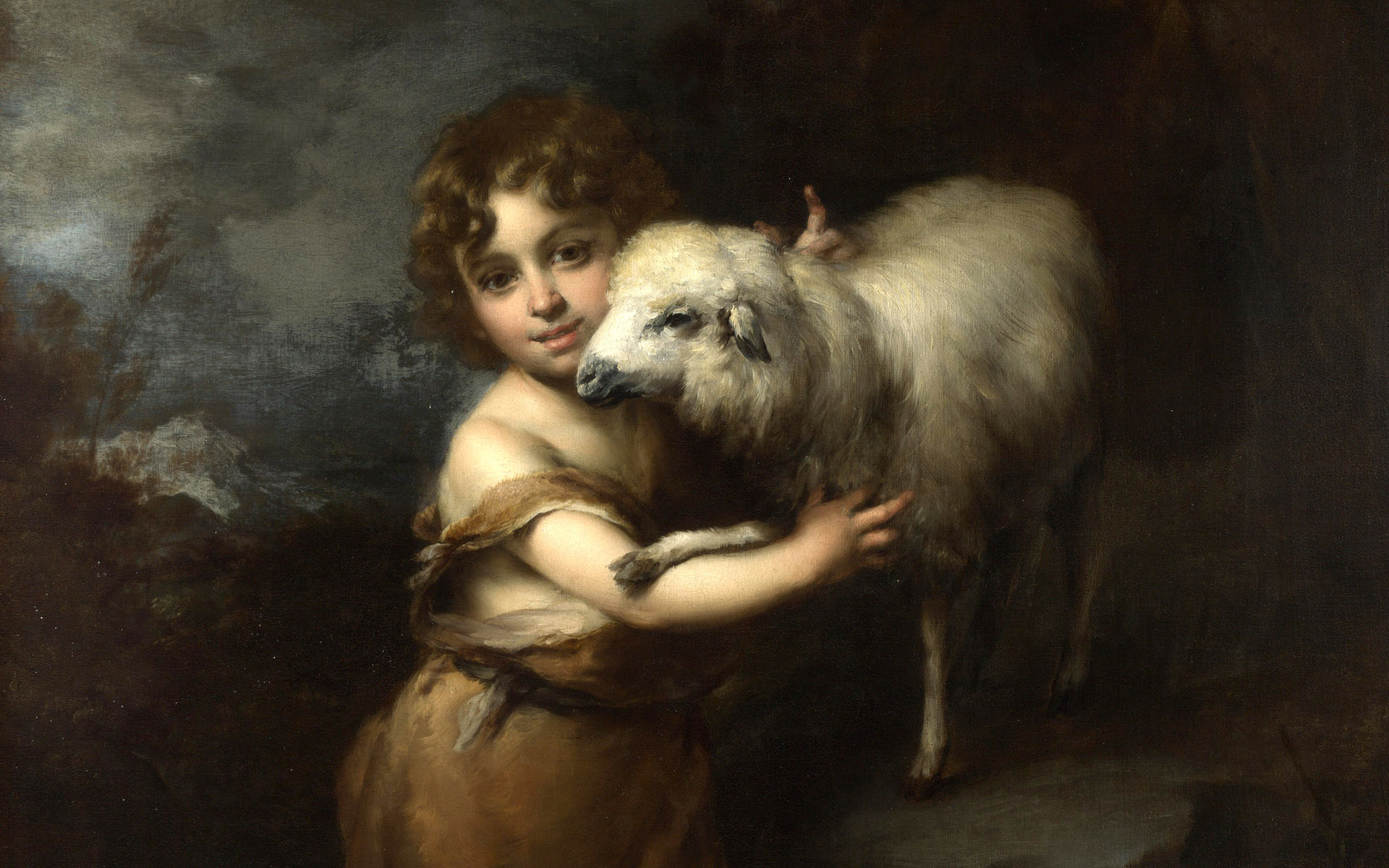 Pagan antiquity had festivals marking the winter and summer solstices. The Christian calendar absorbed these feasts, observing the birth of Christ in December on the shortest day, and that of John the Baptist in June on the longest day. From this day on, the sun slowly sinks from its zenith for six months, and begins its ascent again at Christmas. In the eyes of the Fathers, this solar rhythm is an expression of John’s words: “He must grow greater, while I grow smaller.”
Pagan antiquity had festivals marking the winter and summer solstices. The Christian calendar absorbed these feasts, observing the birth of Christ in December on the shortest day, and that of John the Baptist in June on the longest day. From this day on, the sun slowly sinks from its zenith for six months, and begins its ascent again at Christmas. In the eyes of the Fathers, this solar rhythm is an expression of John’s words: “He must grow greater, while I grow smaller.”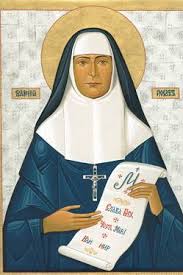 The Synod of Bishops of the Ukrainian Catholic Church have designated April 7, 2019 – April 7, 2020 as a special Jubilee Year marking the 100th Anniversary of the passing into eternal life of
The Synod of Bishops of the Ukrainian Catholic Church have designated April 7, 2019 – April 7, 2020 as a special Jubilee Year marking the 100th Anniversary of the passing into eternal life of 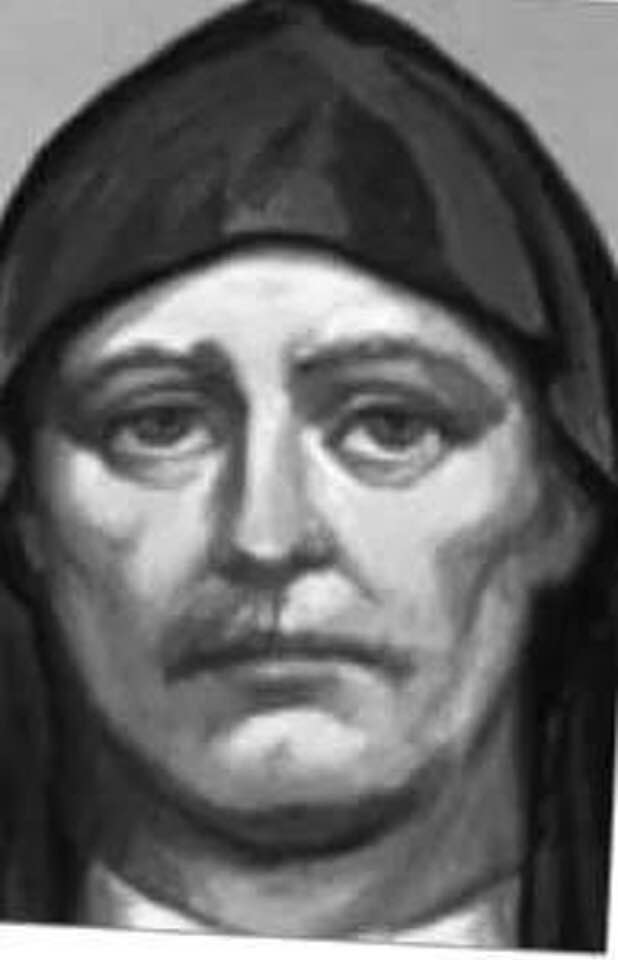 It was on this date in 1907, that Father Vitaliy Bayrak was born. He was a Ukrainian Greek Catholic Basilian priest.
It was on this date in 1907, that Father Vitaliy Bayrak was born. He was a Ukrainian Greek Catholic Basilian priest.